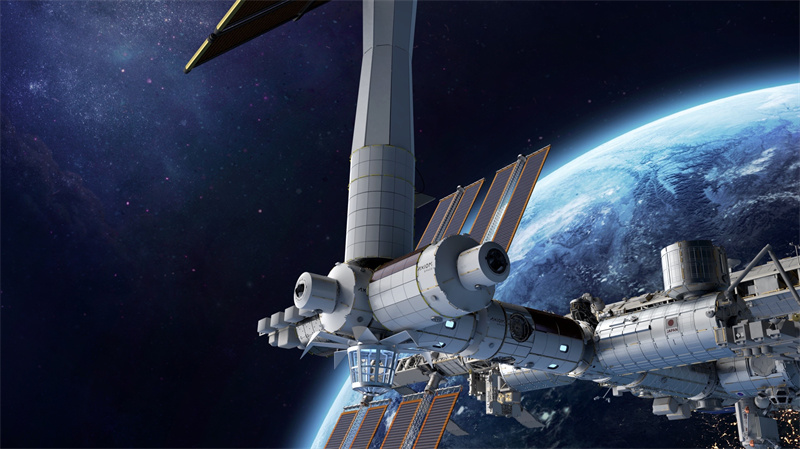Axiom Space, a U.S.-based company at the forefront of space missions, has pitched an ambitious proposal to Taiwanese companies to produce semiconductor materials in space, leveraging the unique environment of low-Earth orbit (LEO). The company, known for its exclusive modules connected to the International Space Station (ISS), believes that the microgravity and vacuum of space could facilitate the creation of ultra-pure semiconductor materials, improving their quality and performance.
At a recent space science meeting in Kaohsiung, Taiwan, Axiom's Asia-Pacific Chief Technology Officer, Dr. Koichi Wakata, who also commanded the ISS, highlighted the advantages of conducting manufacturing experiments in space. Wakata explained that the absence of gravity allows for defect-free crystal growth, which would otherwise be hindered on Earth due to atmospheric impurities and gravitational forces. He emphasized that LEO's microgravity could lead to more uniform crystal formation, particularly important for high-quality semiconductors.
Divya Panchanathan, Axiom's global head of semiconductor commercialization, elaborated that traditional semiconductor production on Earth often suffers from imperfections caused by gravity, leading to defects in crystal structures. However, in space, these crystals can grow more uniformly and without contamination, especially in the vacuum environment that prevents external impurities from interfering.
Axiom Space envisions collaborating with Taiwan's semiconductor industry by conducting initial experiments aboard the ISS. After 2030, when the ISS is expected to retire, Axiom's commercial space station will become the new hub for scaling up space-based semiconductor manufacturing. The company has not disclosed specific materials to be tested, but it is likely to involve single-crystal materials such as silicon, gallium nitride (GaN), and gallium arsenide (GaAs), which are commonly used in semiconductor fabrication.

However, the concept comes with challenges. The cost of sending materials into space remains high, with current launch prices around $3,000 per kilogram. While SpaceX's Falcon Heavy is expected to lower costs, the price of space production may still exceed the benefits, especially when considering the decades of optimization that Earth-based semiconductor manufacturers have achieved. For now, wafer production in space may not be economically viable, but future advancements, particularly in sub-angstrom process technologies, could make ultra-pure wafers produced in space more cost-effective.

Despite the hurdles, Axiom Space remains optimistic. The company's long-term vision includes facilitating partnerships with Taiwanese companies to move semiconductor manufacturing, as well as other industries such as biotechnology and artificial intelligence, to space. Wakata's remarks at the meeting also suggested that the advantages of space-based manufacturing could revolutionize industries, from pharmaceuticals to AI, all benefiting from the unique properties of space.
Axiom's proposal represents a bold step forward in the commercialization of space, with Taiwan, a global leader in semiconductor manufacturing, positioned to play a key role in this new frontier of high-tech production. The collaboration could not only advance space-based manufacturing technologies but also help Taiwan strengthen its technological leadership on the global stage.
+86 191 9627 2716
+86 181 7379 0595
8:30 a.m. to 5:30 p.m., Monday to Friday
